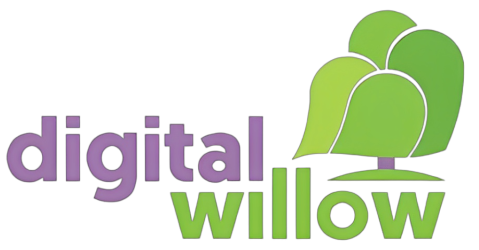Did You Know?
The average smartphone owner uses 10 apps per day and 30 apps each month (buildfire, 2023). On the flip side, however, 49% of apps were uninstalled within the first 30 days (AppsFlyer, 2023).
It’s pretty clear that to make sure that your app is one of the survivors, let alone thrivers, you are going to need a robust marketing plan.
At Digital Willow, our expert team will develop such a plan that will generate awareness, downloads, and engagements for your app-based business using a combination of tactics like paid media, app store optimisation, automations and push notifications.
In a landscape where more than 8.93 million apps have already been created, the level of competition is nothing short of intense. The manner in which you advertise your app can unequivocally dictate whether a user chooses to download and use your app over that of your rivals.
The query that naturally arises is: How can you rise above the rest? What sets you apart?
Using Paid Media to Promote Your App
For immediate visibility and scale, Digital Willow would set up a paid media campaign for advertising your app, utilising channels like Google Search, Microsoft Ads and Apple Search Ads.
Social media and programmatic buying could also form a crucial part of your app advertising plan. At Digital Willow, our team have expertise and experience in using formats such as META App installs; TikTok App install Ads; X (Twitter) app installs, and Snapchat App installs to name a few.
A paid media strategy will speed up app installs quickly and offer the huge benefit of leveraging existing data to market to a tailored audience.
Some targeting options include keywords that your customers are searching for, locations down to postcodes, detailed demographic information, intent buying signals, look-a-likes to existing customers, and even competitor targeting.
During your app marketing planning, setting a target Cost Per Installation (CPI) becomes a pivotal focus, streamlining how paid media investment is spent by channel and format. In the journey ahead, Digital Willow would work with you to adjust the plan for success, thus decreasing the CPI while concurrently aiming for quality customers and high app usage.
App Performance Metrics
Our team obsess over deeper performance metrics, hunting for clues to improve traction with your customer. This data and insight can and should inform future marketing plans. Here are some typical metrics we consider:
| Campaign | User Engagement | Revenue Metrics |
|
|
|
|
|
|
|
|
|
|
|
|
Increase Organic Installs with App Store Optimisation (ASO)
Ensuring your app store listing has been fully optimised is an essential part of any app marketing. It requires incorporating a well-thought-out SEO strategy including aspects such as:
- Keyword Optimisation: Selecting the right keywords relevant to your app’s functionality and target audience is crucial. These keywords should be strategically placed in your app’s title, subtitle, and description to improve its search ranking.
- App Title: Crafting a clear and concise app title that includes important keywords can help improve discoverability. It should convey the app’s purpose and appeal to potential users.
- App Icon: An eye-catching and memorable app icon can attract users’ attention and make your app stand out on the app store.
- App Screenshots and Videos: High-quality screenshots and promotional videos can provide a visual representation of your app’s features and benefits.
- App Description: The app’s description should provide a detailed overview of its features, benefits, and value proposition. It’s an opportunity to convince potential users to download the app.
- Ratings and Reviews: Encouraging users to leave positive reviews and high ratings can boost an app’s credibility and encourage more downloads. Responding to user reviews, especially addressing issues and feedback, is also important.
- App Updates: Regularly updating your app with new features, bug fixes, and improvements can signal to the app stores that your app is actively maintained and relevant, which can positively impact its ranking.
- Localisation: If your app targets a global audience, consider localising your app store listing, including the app title, description, and keywords to cater to different regions and languages.
It is important to ensure that your app’s App Store page is optimised for conversions. This includes having a compelling app icon, an engaging app description, high-quality screenshots and videos, and positive reviews and ratings. A well-optimised page can help increase the Click-Through Rate (CTR) of your ads.
To find out even more about how to increase your app downloads check out our eBook or don’t hesitate to get in touch with the Digital Willow team today!
